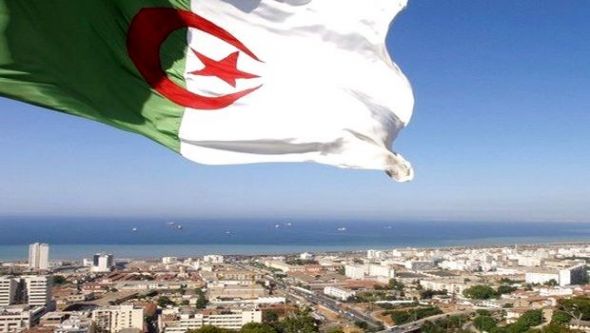Algerians see little reason to vote in the coming general election
THE secretive cabal of power brokers who run Algeria face many challenges. The economic, political and military elite, known collectively as le pouvoir (“the power”), must cure the ailing economy, defeat jihadists and deal with troublesome neighbours, such as Libya and Mali. At times they must also reassure the public that Abdelaziz Bouteflika, Algeria’s elderly president, is still alive.
Mr Bouteflika, who is 80, has ruled Algeria—alongside le pouvoir—since 1999, when he was tapped by the army to be president. But he has suffered at least one stroke in recent years and looks to be in poor health. In February he cancelled a meeting with Angela Merkel, Germany’s chancellor, leading to speculation that he was dead. To dispel such rumours the government releases footage of Mr Bouteflika at work. In the videos, he stares blankly at papers or the camera, while his ministers act impressed.
The president may no longer be of sound mind, but his continuing presence says a lot about the state of politics in Algeria, which will hold a general election on May 4th. Much of the population and, more importantly, le pouvoir, cling to Mr Bouteflika, who led the country out of a brutal civil war that raged for most of the 1990s. Since the fighting stopped, Algeria has avoided the turmoil that plagues its neighbours. Even in his weakened state, Mr Bouteflika is seen as a stabilising force.
To keep things steady, says the government, voters must show up for the coming poll. “We have to vote massively to reinforce political and security stability in the country and offer support for President Bouteflika,” said Djamel Ould Abbas, head of the National Liberation Front (FLN), the president’s party, at a rally this month. The FLN’s allies have played up the army’s fight against Islamist extremists and a potential economic crisis to mobilise voters.
Despite the government’s best efforts, turnout for the vote may be even lower than in 2012, when only 43% bothered to cast ballots. Some 12,000 candidates will compete for 462 seats, but many Algerians assume that the polls are fixed and that the FLN and its allies will win by a wide margin. The party has dominated parliament since Algeria gained independence from France in 1962. When Islamists won an election in 1991, the army annulled the result, leading to civil war.
Revisions to the constitution, passed in 2016, ostensibly give the legislature more power, but it has continued to act as a rubber stamp for the government’s policies. Many of this year’s candidates have connections to le pouvoir. Several opposition parties are boycotting the election. The press has been told to ignore them. Many of the parties that do participate will probably win—or be granted—some seats, as the government hopes to gain broad political support for its austerity measures.
Algeria’s economy grew by 4% last year, but it has been hit hard by the low price of oil and gas. Revenues from fuel exports, which pay for 60% of the government’s budget, have fallen by nearly half since 2014. In response, the government has cut spending by 14% this year, after a 9% reduction last year. It has increased the price of subsidised fuel and electricity, raised taxes and frozen public-sector hiring. Still, the government ran a budget deficit of 12% of GDP last year, while its foreign reserves dropped to $114bn, from $196bn in 2014.
As the cost of living rises, Algerians are growing angry. Inflation was 7.6% in February, with subsidy cuts and import restrictions pushing up the price of staples such as food. The unemployment rate sits above 10%; young people have few prospects. The government, so accustomed to buying stability with generous handouts, has failed to prepare Algeria for the hard times.
The economy is too dependent on oil and gas and still too centralised. Foreign energy companies are keen to invest, but complain of too much red tape. Corruption is a big problem. Indeed, some of the candidates running for parliament seek immunity from prosecution, which is one of the perks of office.
Still, Algerians appear to be reluctant to challenge the government in a significant way. A more serious threat to stability may come when Mr Bouteflika dies. In recent years he and his allies have purged le pouvoir of independent figures and consolidated more power in the presidency. There appears to be little agreement over who should succeed him, which is perhaps another reason why he has nominally been left in charge. Algerian politics have long been murky. But for a country that prizes stability, it might help to have stronger and more transparent institutions. A capable parliament would be a start.
Source: Arab politics: Stability or stagnation in Algeria? | The Economist














